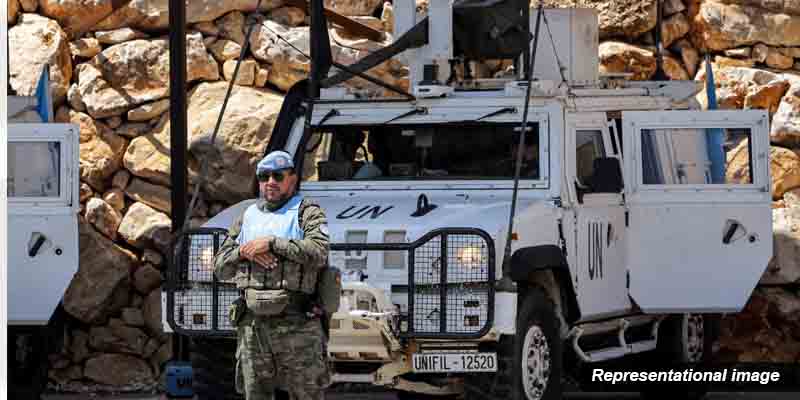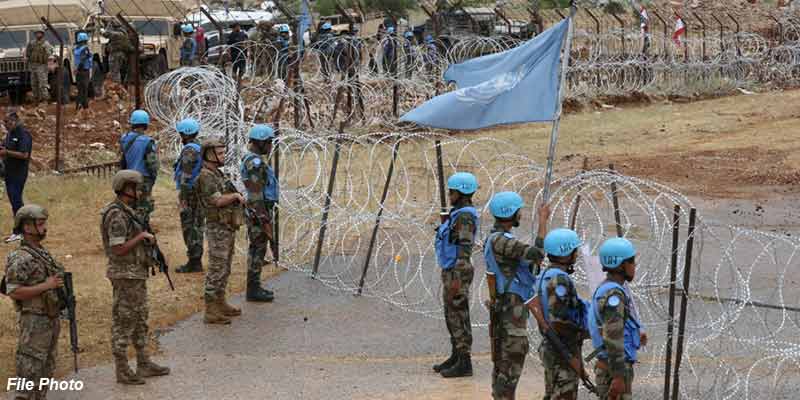- World
- Aug 29
UNIFIL to cease operations by end of 2026
• The United Nations Security Council extended the UN peacekeeping mission which patrols the so-called Blue Line of separation between Israel and Lebanon “for a final time” till December 31, 2026.
• The resolution stipulates it will then begin a one year “orderly and safe drawdown and withdrawal of its personnel”, in close consultation with the Lebanese government.
• During the withdrawal period after the end of next year, the resolution says UNIFIL is authorised to continue providing security and assistance to UN personnel, while continuing to “maintain situational awareness” around UNIFIL outposts and bases.
• It will also “contribute to the protection of civilians and the safe civilian-led delivery of humanitarian assistance.”
What is the history of Blue Line?
• Following an invasion by Israeli forces into Lebanon, the UN Security Council, in March 1978, established the United Nations Interim Force in Lebanon (UNIFIL) mandating it to confirm the withdrawal of Israeli forces from Lebanon, restore international peace and security, and assist the Lebanese government to restore its effective authority in the area.
• In June 1982, Israel invaded Lebanon for the second time and subsequently established a security zone inside the country, which remained until its withdrawal in 2000.
• In 1985, Israel partially withdrew its forces from Lebanon, but retained control of an area in southern Lebanon controlled by Israel Defence Forces (IDF) and Lebanese De Facto Forces (DFF).
• On April 17, 2000, the government of Israel notified the UN Secretary-General that it would withdraw its forces from Lebanon by July 2000.
• In preparation of the withdrawal of the Israel Defence Forces (IDF) from Lebanon, the UN identified the ‘Line of Withdrawal’, or so-called ‘Blue Line’, largely conforming to the internationally recognised boundaries of Lebanon.
• The United Nations established this Line in June 2000 for the sole purpose of confirming the full withdrawal of the IDF from Lebanese territory.
• The Line is described as the best approximation of the 1923 Boundary Line and the 1949 Armistice Demarcation Line. It does not in any way represent an international border and is without prejudice to any future border arrangements between Lebanon and Israel. The Line is 120 km long.
• Until July 2006, despite numerous violations of the Line of Withdrawal, as well as sea and air violations, and occasional breaches of the ceasefire, the situation in the area remained relatively calm.
• On July 12, 2006, war broke out between Israel and Lebanon after Hezbollah had carried out an attack on an IDF patrol, kidnapping two IDF soldiers and killing three others.
• On August 11, 2006, the Security Council adopted resolution 1701 (2006), which ended the war and in which the Council decided to enlarge UNIFIL (to a maximum of 15,000 troops) and enhance its mandate.
• UNIFIL headquarters is located in Naqoura. The area of operations extends from the Blue Line in the south to the Litani River in the north and is divided into two sectors, East and West.
• The mission has more than 10,000 troops from 50 countries and about 800 civilian staff.
• The mandate for the operation is renewed annually by the 15-member UN Security Council.
Complex operational space
• Southern Lebanon remains a challenging operational environment, where UNIFIL works to implement Security Council resolution 1701, which brought an end to the 2006 hostilities between Israel and Hezbollah militants.
• The mission’s mandate includes monitoring the cessation of hostilities, supporting the deployment of the Lebanese Armed Forces in the south, and helping to ensure that the area between the Blue Line and the Litani River remains free of unauthorized weapons.
• To strengthen Lebanese military capacity, the mission has been training personnel in surveying and removing explosive devices, securing contaminated sites and navigating mined areas.
• The region has experienced recurring tensions, including a sharp escalation in 2024 marked by numerous Israeli airstrikes and ground operations.
• These incidents have affected local communities and resulted in damage to several UN positions, and injuries to several ‘blue helmets’ serving with UNIFIL.


